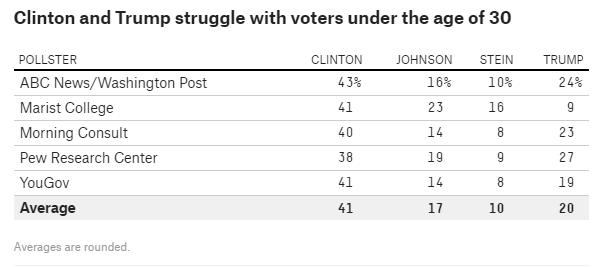Politics
Good News for the Future for Third Parties
August 21st 2016
By:
A third-party candidate has not made the presidential debate stage since Ross Perot in 1992 and there's a reason: If you run for US. president, you must poll at 15 percent in five national surveys leading up to the scheduled debates or you can't participate in them.
Nearly 24 years later, we're still not likely to see an independent or third-party candidate invited to the debates in 2016. But we might, if it were only up to voters under the age of 30.

 FiveThirtyEight -
FiveThirtyEight -